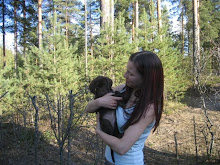
Opponent to classical conditioning is operant or instrumental conditioning. Behavioral change often involves much more complicated and dynamic interactions between the dog and the enviroment than classical conditioning can tell us. Opposed to the involuntary nature of reflexive behavior, a great deal of what dog does is very motivated and goal directed. In 1960s American psychologist, B.F. Skinner, conducted research of operant conditioning but Edward L. Thorndike, also American psychologist, found it already in 1910s. So Thorndike is credited with founding the study of instrumental learning. He was specifically interested in the question how performance improved through trial and error. Thorndike performed numerous experiments involving problem solving in cats and other animals or pets. There´s one person who is the most forceful and controversial figure in the history of behaviorism, B.F. Skinner. Like Thorndike before him, Skinner studied the effects of reward (reinforcement) and punishment for altering and controlling animal behavior. He placed far greater emphasis on the use of positive consequences rather than punishment.
Operant conditioning means the link between dog´s behavior and the consequences of the behavior. So dog learns by perceiving and being active. Operant conditioning is, unlike classical, voluntary learning. Its basic principle is that dog´s behavior is strengthened or weakened depending on the consequences dog´s behavior produces. Behavior strengthens if consequences are pleasant to the dog and weakens if consequences are unpleasant. Through the combined efficacy of classical and operant conditioning, dogs can reliably predict and control the occurence of biologically significant events. Classical learning provides dogs with predictive information about the occurence of these events, while voluntary operant efforts serve to optimize the dog´s control over them.


No comments:
Post a Comment